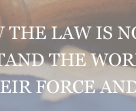Appellate Law
Often, a verdict in the trial court does not put an end to the legal proceedings. In many cases, the losing party in the trial court will appeal the verdict to a higher court. Amy Weil has over 35 years of experience in all areas of appellate litigation, from interlocutory issues that may arise during the course of litigation to all aspects of post-trial relief. Ms. Weil has appeared in hundreds of cases, both civil and criminal, arising in the United States Court of Appeals for the Eleventh Circuit, many of which resulted in published opinions. Ms. Weil has handled all types of appellate issues arising from cases in which she was lead counsel, and in cases that she supervised during her 18 years as Chief of the Appellate Division of the United States Attorney's Office for the Northern District of Georgia. She has handled a variety of interlocutory appeals, post-trial motions, mandamus proceedings, habeas corpus proceedings, and writs of error coram nobis.
Among the most significant appeals that Ms. Weil has handled are those which were heard before the full Eleventh Circuit Court of Appeal sitting en banc, including:
United States v. Ballinger, 395 F.3d 1218 (11th Cir. 2005) (en banc)
Jay Scott Ballinger entered a negotiated guilty plea to five counts of church arson, in violation of 18 U.S.C. § 247, based on an arson spree during which Ballinger destroyed or badly damaged 11 churches, killing a volunteer firefighter, and seriously injuring three other volunteer firefighters. As part of his plea agreement, Ballinger reserved the right to appeal the constitutionality of § 247 under the Commerce Clause, U.S. Const., Art. I, § 8, cl. 3, both on its face and as applied to him. On appeal, a panel of the Eleventh Circuit Court of Appeals reversed Ballinger's convictions, holding that, although § 247 was a constitutional exercise of the commerce power, Ballinger's conduct did not fall within the ambit of the statute. The government's petition for rehearing en banc was granted, and the panel opinion was vacated. On rehearing en banc by the full Court, the Court reversed its previous position and upheld Ballinger's conviction, holding that Congress' authority under the Commerce Clause includes the power to punish a church arsonist who uses the channels and instrumentalities of interstate commerce to commit his offenses, and that Ballinger's use of channels and instrumentalities of interstate commerce to carry out an arson spree in which he crossed interstate borders six times to set fire to 11 churches in four states within a month met the statutory requirement that the offense be “in interstate commerce.”
Ms. Weil drafted both the successful petition for rehearing en banc and en banc brief.
United States v. Frazier, 387 F.3d 1244 (11th Cir. 2004) (en banc)
Richard Junior Frazier was indicted for kidnapping, and at his jury trial sought to introduce the opinion of a forensic investigator who would was prepared to testify that forensic evidence did not show the presence of Frazier's hair or fluids on the victim or in her car, yet with the amount of sexual activity claimed by the victim it would have been “expected” that some transfer of hairs or seminal fluid would have occurred. The district court excluded this testimony, Frazier was convicted, and he received a sentence of life imprisonment. On appeal, a panel of the Eleventh Circuit Court of Appeals reversed Frazier's conviction, ruling that the trial judge abused his discretion in excluding the forensic investigator's opinion. The full Court granted rehearing en banc, vacated the panel opinion, and upheld the conviction. The en banc Court held that the district court properly excluded the forensic investigator's opinion, because an opinion as to what would be “expected” was inherently ambiguous; the opinion was unreliable because no basis was offered to support it, either by reliable scientific studies or the expert's own experience; and the opinion would not aid the jury because it was imprecise and unspecific.
Ms. Weil drafted the successful en banc brief, and orally argued the case before the full Court.
United States v. Sa nchez, 269 F.3d 1250 (11th Cir. 2001) (en banc)
Ignasio Sanchez and Santiago Sanchez pleaded guilty to conspiracy to distribute and to possess with intent to distribute methamphetamine and amphetamine, in violation of 21 U.S.C. §§ 841, 846. As part of their negotiated plea agreement, they reserved the right to argue that the government violated the rule of Apprendi v. New Jersey, 530 U.S. 466 (2000), by failing to allege drug quantity in the indictment as an element of the offense. On appeal, a panel of the Eleventh Circuit Court of Appeals held that drug quantity in sections § 841(b)(1)(A) and § 841(b)(1)(B) cases must be charged in the indictment and proven to a jury beyond a reasonable doubt. The Court ordered that the case be reheard en banc, and vacated the panel opinion. On rehearing en banc, the full Court rejected the opinion of the panel, holding instead that Apprendi had no application to, or effect on, the Sanchezes' sentences because their sentences were the statutory mandatory minimum penalty, and did not exceed the unenhanced statutory maximum penalty. The Court further held that mere exposure to a sentence in excess of the statutory maximum did not trigger the rue of Apprendi.
Ms. Weil drafted the successful en banc brief, and orally argued the case before the full Court.
United States v. Smith, 127 F.3d 987 (11th Cir. 1997) (en banc)
Harry Leon Smith, III, pleaded guilty to running a check-kiting scheme, and was sentenced pursuant to the Federal Sentencing Guidelines. The probation officer initially recommended in her presentence report that Smith receive a three-level reduction in his offense level for acceptance of responsibility pursuant to § 3E1.1, but later withdrew the recommendation after Smith objected to several paragraphs of the report. At sentencing, the judge refused to award Smith acceptance of responsibility, and on appeal a panel of the Eleventh Circuit Court of Appeals vacated Smith's sentence and remanded the case for resentencing. According to the panel, the sentencing judge improperly considered Smith's objection to the presentence report in denying acceptance. The full Court vacated the panel opinion, ordered rehearing en banc, and affirmed the sentence. The en banc Court ruled that it was not improper for a sentencing court to refuse to grant acceptance of responsibility based on a defendant's objections to his presentence report PSR; the refusal to award a reduction under § 3E1.1 may be based on conduct inconsistent with acceptance of responsibility, even when that conduct includes the assertion of a constitutional right.
Ms. Weil drafted the successful en banc brief, and orally argued the case before the full Court.
United States v. Shields, 87 F.3d 1194 (11th Cir. 1996) (en banc)
Maurie Shields pleaded guilty to conspiracy to manufacture marijuana after law enforcement officers discovered him growing plants in a hydroponic garden. At sentencing, the court calculated Shields' sentence using the number of the harvested plants, rather than the weight of the marijuana derived from those plants. On appeal, a panel for the Eleventh Circuit Court of Appeals ruled that a grower who is apprehended after harvest may not be sentenced according to the number of plants involved. The full Court vacated the panel opinion, granted rehearing en banc, and affirmed the sentence. The en banc Court held that a defendant who has grown and harvested marijuana plants should be sentenced according to the number of plants involved in the offense, rather than the post-harvest weight of consumable marijuana.
Ms. Weil drafted the successful en banc brief, and orally argued the case before the full Court.
United States v. Alpert, 28 F.3d 1104 (11th Cir. 1994) (en banc)
While under investigation for credit card and credit-related fraud, Carl Henry Alpert and his wife Helene, through their attorneys, entered into plea negotiations with the government. Before the last scheduled meeting, the Alperts disappeared leaving no forwarding address. The Alperts were indicted, Carl on 41 counts of credit card and credit-related fraud, and Helene on 5 counts. A few days after the indictment, Carl was arrested in California, where the family had moved, for fraudulently leasing an automobile, and he gave police a false name upon arrest. A subsequent search of the Alperts' California home revealed false documents indicating that the Alperts had continued to engage in criminal activity. Carl pleaded guilty to 40 counts, and Helene to 2 counts. At sentencing, the court enhanced their sentences under Federal Sentencing Guideline § 3C1.1 for obstruction of justice based on their disappearance and continued criminal activity, and departed upward as to Carl's sentence to account for the duration and extent of his fraudulent activity, and to ensure that his sentence would be double that of his wife. On appeal, a panel of the Eleventh Circuit vacated the sentences, holding that neither the Alperts' disappearance while engaged in plea negotiations nor Carl's use of a false name after being arrested were sufficient to justify a § 3C1.1 enhancement for obstruction of justice; and the upward departure of Carl's sentence was unjustified based on his greater culpability as compared to his wife's, plus the extent of his misconduct was already taken into account by the Sentencing Guidelines' enhancement for “more than minimal planning.” The full Court on its own motion vacated the panel opinion, and reheard the case en banc. The majority of a deeply divided Court held that the sentencing court's factual findings regarding how the Alperts' conduct hindered the investigation or prosecution of the offense were insufficient to support the obstruction of justice enhancement; and agreed with the panel that an upward departure was not warranted.
Ms. Weil drafted the en banc brief, and orally argued the case before the full Court.
Other significant published opinions in cases in which Ms. Weil either wrote the brief, or argued the appeal, or both, include:
United States v. Molina, 443 F.3d 824 (11th Cir. 2006) (obtained reversal of entry of post-verdict judgment of acquittal), United States v. Barner, 441 F.3d 1310 (11th Cir. 2006) (obtained reversal of dismissal of indictment based on prosecutorial vindictiveness), United States v. Miranda, 425 F.3d 953 (11th Cir. 2005) (obtained reversal of grant of motion for new trial), United States v. Pipkins, 378 F.3d 1281 (11th Cir. 2004) (upheld use of RICO statute to prosecute child prostitution), United States v. Timmons, 283 F.3d 1246 (11th Cir. 2002) (upheld passive use of firearm in § 924(c) prosecution), United States v. Rucker, 171 F.3d 1359 (11th Cir. 1999) (obtained reversal of downward departure at sentencing), Blaik v. United States, 161 F.3d 1341 (11th Cir. 1998) (successful petition for panel rehearing), In re Reed, 161 F.3d 1311 (11th Cir. 1998) (upheld criminal contempt), United States v. Phillips,120 F.3d 227 (11th Cir. 1997) (obtained reversal of downward departure at sentencing), United States v. Chotas, 968 F.2d 1193 (11th Cir. 1992) (same) United States v. Wright, 133 F.3d 1412 (11th Cir. 1998) (successful defense to Second Amendment challenge), United States v. Aimufua, 935 F.2d 1199 (11th Cir. 1991) (denial of acceptance for continued criminal activity affirmed), United States v. Forker, 928 F.2d 365 (11th Cir. 1991) (reversal of suppression motion), United States v. Reed, 924 F.2d 1014 (11th Cir. 1991) (application of 18 U.S.C. § 1963(m) did not violate the ex post facto clause), United States v. Roberson, 897 F.2d 1092(11th Cir. 1990) (affirming judge’s refusal to call prosecutor as trial witness), Jefferson v. Bowen, 837 F.2d 461(11th Cir. 1988) (Social Security recipient not entitled to EAJA fees for overpayment)
Some of the other cases Ms. Weil orally argued before the Eleventh Circuit include:
United States v. Garcia-Sandobal, 703 F.3d 1278 (11th Cir. 2013), United States v. Blair, 493 Fed. Appx. 38 (11th Cir. 2012); United States v. Smith, 433 Fed. Appx. 847 (11th Cir. 2011), James Ventures, L.P. v. Timco Aviation Services, Inc., 403 Fed. Appx. 425 (11th Cir. 2010), United States v. Brown, 374 Fed. Appx. 927 (11th Cir. 2010), Burgess v. McNeil, 357 Fed. Appx. 206 (11th Cir. 2009), United States v. Coney, 349 Fed. Appx. 497 (11th Cir. 2009), United States v. Hearing, 260 Fed. Appx. 259 (11th Cir. 2008), United States v. Dean, 517 F.3d 1224 (11th Cir. 2008), United States v. Demetz, 219 Fed. Appx. 920 (11th Cir. 2007), United States v. Cena, 448 F.3d 1279 (11th Cir. 2006), United States v. Crawford, 407 F.3d 1174 (11th Cir. 2005), United States v. Walker, 131 Fed. Appx. 269 (11th Cir. 2005), United States v. Bidwell, 393 F.3d 1206 (11th Cir. 2004), United States v. Ramos, 112 Fed. Appx. 1 (Table) (11th Cir. 2004), United States v. Bruzon, 64 Fed. Appx. 741 (11th Cir. 2003), United States v. Shumake, 54 Fed. Appx. 690 (Table) (11th Cir. 2002), United States v. Pounds, 230 F.3d 1317 (2000), Bush v. United States, 218 F.3d 746 (Table) (11th Cir. 2000), Demar v. United States, 245 F.3d 793 (Table) (11th Cir. 2000), United States v. Walker, 198 F.3d 811 (11th Cir. 1999), United States v. McLellan, 184 F.3d 822 (Table) (11th Cir. 1999), United States v. Schoettlin, 182 F.3d 937 (Table) (11th Cir. 1999), United States v. Mosley, 173 F.3d 1318, (11th Cir. 1999), United States v. Robinson, 172 F.3d 883 (Table) (11th Cir. 1999), Hayes v. United States, 158 F.3d 587 (Table) (11th Cir. 1998), United States v. Blunt, 140 F.3d 1041 (Table) (11th Cir. 1998), United States. v. Derose, 74 F.3d 1177 (11th Cir. 1996); United States v. Phillips, 936 F.2d 1252 (11th Cir. 1991)























